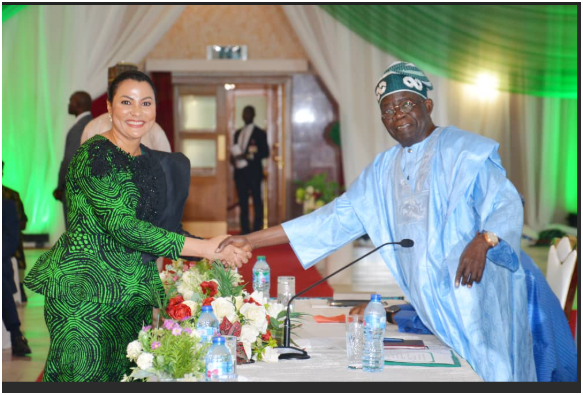ABUJA, NIGERIA — July 8, 2025 | IDNN ECONOMY & POLICY DESK —
President Bola Ahmed Tinubu has declared that over ₦4 trillion saved from the controversial removal of fuel subsidies is now being reinvested into infrastructure, transportation, and targeted social interventions as part of his administration’s blueprint for rebuilding public trust and reshaping Nigeria’s economy.
Speaking at the National Conference on Public Accounts and Fiscal Governance in Abuja, Tinubu—represented by Minister of State for Finance, Doris Uzoka-Anite—stated that the financial reprioritization marks a pivot from past fiscal indiscipline to what he called “citizen-focused delivery.”
“In 2022 alone, Nigeria spent over ₦4 trillion on fuel subsidies—more than it allocated to capital expenditure,” Tinubu said. “It was physically unsustainable, economically unjust, and morally indefensible.”
He emphasized that the new fiscal policy is designed to broaden investment in social safety nets, public transportation, and economic resilience, while gradually ending Nigeria’s dependence on oil.

From Waste to Value: Roads, Buses, Welfare
The Tinubu administration says redirected funds have been used to expand mass transit networks, increase CNG bus deployment, finance new roads and energy projects, and scale social intervention programs.
“We are creating jobs, fostering innovation, and strengthening our national security and long-term stability,” the President said in his prepared remarks.
He also cited the launch of the National Credit Guarantee Company, which is expected to bolster local manufacturers and expand access to export credit for SMEs.
New Tax Regime, New Targets
In addition to subsidy reforms, Tinubu spotlighted recently enacted tax laws aimed at simplifying compliance, eliminating overlapping levies, and expanding the tax base.
The new system targets informal sector integration, automation of tax collection, and reduced reliance on oil proceeds.
“Our goal is a sustainable economy—one that is self-funded, digitized, and shock-resistant,” Tinubu declared.
Oversight, Audit Culture Strengthened
The President called on Nigeria’s legislature to take fiscal oversight seriously, reminding the Public Accounts Committees (PACs) that audit enforcement is not a political tool but a patriotic duty.
Senate President Godswill Akpabio, represented by Senator Abdul Ningi, echoed that sentiment, warning that many government agencies treat legislative summons with disregard.
“Without accountability, there will be no prosperity,” Akpabio warned. “The PACs must rise to enforce transparency across MDAs, including sensitive institutions like the CBN and NNPC.”
House Speaker Tajudeen Abbas revealed that over ₦300 billion in flagged public funds remain unrecovered due to delayed audit implementation, and called for tighter deadlines, digitized tracking systems, and stronger sanctions for violations.
IMF, Analysts Praise Cautious Optimism
Economists and international bodies like the IMF have welcomed Nigeria’s post-subsidy shift as necessary but stress the need for transparency and broad-based impact.
“The subsidy removal frees up fiscal space, but execution and equity are key,” said IMF in a recent Nigeria-focused analysis.
With inflation still hovering above 20% and the naira under pressure, many believe how Tinubu channels the ₦4tn savings may define his administration’s long-term economic legacy.
🧨 This is IDNN. Independent. Digital. Uncompromising.
